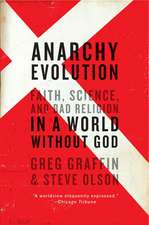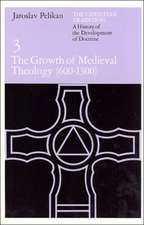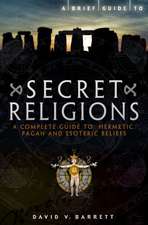Consuming Religion: Class 200: New Studies in Religion
Autor Kathryn Loftonen Limba Engleză Hardback – 30 oct 2017
With great style and analytical acumen, Lofton offers the ultimate guide to religion and consumption in our capitalizing times.
Din seria Class 200: New Studies in Religion
-
 Preț: 207.22 lei
Preț: 207.22 lei -
 Preț: 98.62 lei
Preț: 98.62 lei -
 Preț: 121.41 lei
Preț: 121.41 lei -
 Preț: 168.19 lei
Preț: 168.19 lei -
 Preț: 169.14 lei
Preț: 169.14 lei -
 Preț: 185.56 lei
Preț: 185.56 lei -
 Preț: 217.62 lei
Preț: 217.62 lei -
 Preț: 229.94 lei
Preț: 229.94 lei -
 Preț: 240.69 lei
Preț: 240.69 lei -
 Preț: 262.38 lei
Preț: 262.38 lei -
 Preț: 222.42 lei
Preț: 222.42 lei -
 Preț: 208.18 lei
Preț: 208.18 lei - 23%
 Preț: 620.91 lei
Preț: 620.91 lei -
 Preț: 239.88 lei
Preț: 239.88 lei -
 Preț: 223.58 lei
Preț: 223.58 lei -
 Preț: 205.29 lei
Preț: 205.29 lei - 20%
 Preț: 237.12 lei
Preț: 237.12 lei - 18%
 Preț: 152.10 lei
Preț: 152.10 lei - 22%
 Preț: 479.93 lei
Preț: 479.93 lei - 17%
 Preț: 165.63 lei
Preț: 165.63 lei - 21%
 Preț: 458.38 lei
Preț: 458.38 lei -
 Preț: 185.66 lei
Preț: 185.66 lei
Preț: 486.89 lei
Preț vechi: 615.09 lei
-21% Nou
Puncte Express: 730
Preț estimativ în valută:
93.17€ • 99.63$ • 77.68£
93.17€ • 99.63$ • 77.68£
Carte indisponibilă temporar
Doresc să fiu notificat când acest titlu va fi disponibil:
Se trimite...
Preluare comenzi: 021 569.72.76
Specificații
ISBN-13: 9780226481937
ISBN-10: 022648193X
Pagini: 352
Ilustrații: 14 halftones
Dimensiuni: 152 x 229 x 28 mm
Greutate: 0.66 kg
Ediția:1
Editura: University of Chicago Press
Colecția University of Chicago Press
Seria Class 200: New Studies in Religion
ISBN-10: 022648193X
Pagini: 352
Ilustrații: 14 halftones
Dimensiuni: 152 x 229 x 28 mm
Greutate: 0.66 kg
Ediția:1
Editura: University of Chicago Press
Colecția University of Chicago Press
Seria Class 200: New Studies in Religion
Notă biografică
Kathryn Lofton is professor of religious studies, American studies, history and divinity at Yale University.
Cuprins
Preface
Introduction
Practicing Commodity
1 Binge Religion: Social Life in Extremity
2 The Spirit in the Cubicle: A Religious History of the American Office
Revising Ritual
3 Ritualism Revived: From Scientia Ritus to Consumer Rites
4 Purifying America: Rites of Salvation in the Soap Campaign
Imagining Celebrity
5 Sacrificing Britney: Celebrity and Religion in America
6 The Celebrification of Religion in the Age of Infotainment
Valuing Family
7 Religion and the Authority in American Parenting
8 Kardashian Nation: Work in America’s Klan
Rethinking Corporate Freedom
9 Corporation as Sect
10 On the Origins of Corporate Culture
11 Do Not Tamper with the Clues: Notes on Goldman Sachs
Conclusion
Acknowledgments
Notes
Index
Introduction
Practicing Commodity
1 Binge Religion: Social Life in Extremity
2 The Spirit in the Cubicle: A Religious History of the American Office
Revising Ritual
3 Ritualism Revived: From Scientia Ritus to Consumer Rites
4 Purifying America: Rites of Salvation in the Soap Campaign
Imagining Celebrity
5 Sacrificing Britney: Celebrity and Religion in America
6 The Celebrification of Religion in the Age of Infotainment
Valuing Family
7 Religion and the Authority in American Parenting
8 Kardashian Nation: Work in America’s Klan
Rethinking Corporate Freedom
9 Corporation as Sect
10 On the Origins of Corporate Culture
11 Do Not Tamper with the Clues: Notes on Goldman Sachs
Conclusion
Acknowledgments
Notes
Index
Recenzii
"In sum Consuming Religion is an elegant, critical, wide-ranging and thought-provoking account of religion and spirituality in America today."
"Lofton’s Consuming Religion takes us through the Kardashians, cubicle design, and Goldman Sachs, among other phenomena, to reveal the relationship of religion and popular culture. At its best, this book feels like an exciting revelation about who and what we should be addressing in religious studies."
“Not only are Lofton's definitions of religion alone worth the price of admission to this text, but they should also remind us of previous studies that chose to foreground religion's less-than-liberative characteristics within the field of American religion. . . . Its strength as an edited collection manifests most strongly through its method of analysis across scale and academic subject matter. . . We may all be consuming this text for the foreseeable future in order to understand better its claims, but we are also, at the same time, being consumed by it and its various methodological seductions.”
The separation of her research into examinations of niches within neo-liberal and late capitalist practices diffuses as well as sharpens her analytical and erudite examination of corporate cubicles, the Kardashians, soap advertising, parenting, ritualism debates in the 19th century and Britney Spears, to name but a few of her diverse and detailed examples packaged as Consuming Religion. . . seeing her media coverage through the filters of Georges Bataille, Claude Lévi-Strauss, Sigmund Freud and René Girard deepens relevance.”
“Lofton’s intellectually dizzying and absolutely brilliant book calls our attention to the fundamentals of our consuming religion. . .[a] field-defining study. . . . In the age of selfie sticks, Lofton thus brings the study of religion up close and personal with its own ‘othered’ and refracted reflection in the mirror.”
“Lofton revitalizes academic definitions of religion, putting them to work in the midst of the limitations and possibilities of organizing life, attending to how people configure their lives as religious, but also amplifying the recurring patterns and processes of organization that have been examined in the academic study of religion as elementary forms of religious life.”
"With big data and mass customization changing marketing strategies and transforming patterns of consumption at warp speed, Consuming Religion is a timely exploration of a world in which reality is branded. Unexpected connections and juxtapositions reveal religion in unexpected places and practices. To follow Kathryn Lofton’s romp through today’s mediascape is to discover the superficiality of pop culture to be surprisingly profound."
"Kathryn Lofton’s Consuming Religion is a modern classic. It is the sequel to Durkheim’s Elementary Forms of Religious Life and is destined to be as enduring. Moving beyond stale debates on secularism, pressing us to see religion in new forms of modernity, Lofton takes us on a lively tour of religion in the everyday practices and institutions of consumer society. In the end, this tour de force leaves us with both a new respect for, and critique of, religion as consumerism and consumerism as religion."
“There is no more perspicacious observer of the relentless religious innovation of contemporary consumer culture than Kathryn Lofton. With restless brilliance and erudition, she takes us on a chilling tour of the American marketplace figured as religion. Having revealed the sacrificial violence at the heart of our common life, Lofton urges us to commit ourselves to making religion ‘do something different’—to ‘freedom from the primal horde.’”
“In a critical voice recognizably hers and only hers, Lofton brilliantly probes the most cunning junctures of contemporary neoliberal religion. Ranging over corporate cubicles; the advertising industry; finance; the dark arts of the creation, promotion, and destruction of celebrity; and much, much more, Lofton shows how at the deepest levels of imagination, desire, and discipline the modern histories of neoliberalism and religion—and the contemporary practices of both—have been and remain utterly entwined. Consuming Religion is a learned, incisive, often revelatory work; it is also deeply humane and compassionate. With this book, Lofton not only emerges clearly as the contemporary study of religion’s Walter Benjamin; she also helps restore the social critical voice of religious studies. Such a project was never more urgent than it is today.”
"Kathryn Lofton breaks wide the definition of religion, and in so doing, redefines the interplay between the sacred and the so-called secular—whether it's pop icons or parenting, the Kardashians or corporate culture. We have been waiting for a book that elevates the discourse about how marketing and faith collide and co-mingle. Consuming Religion is that book."
"This book explores the 'hermeneutic territory' that opens up when scholars accept the 'commonalities' of consumer popular culture and traditional religions (xi). It is, ultimately, not a book about consumer culture’s effects on traditional religions, but about how corporate discourse, consumer marketing, and media celebrity themselves constitute forms of sociality that demand analysis by scholars of religion."
"Lofton's Consuming Religion is a refreshing and thought-provoking collection of essays in which she aims to illuminate the relationship with modern consumption culture. Breaking down this extensive endeavor into remarkable sub-themes, Lofton explores the category of religion as 'a category of law and learning, as a description of social movements, and as a summary of identity or claim of belief,' and the ways in which consumer culture illuminates what individuals value."














